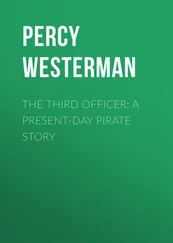David Epperson - The Third Day
Здесь есть возможность читать онлайн «David Epperson - The Third Day» весь текст электронной книги совершенно бесплатно (целиком полную версию без сокращений). В некоторых случаях можно слушать аудио, скачать через торрент в формате fb2 и присутствует краткое содержание. Жанр: Фантастика и фэнтези, на английском языке. Описание произведения, (предисловие) а так же отзывы посетителей доступны на портале библиотеки ЛибКат.
- Название:The Third Day
- Автор:
- Жанр:
- Год:неизвестен
- ISBN:нет данных
- Рейтинг книги:3 / 5. Голосов: 1
-
Избранное:Добавить в избранное
- Отзывы:
-
Ваша оценка:
- 60
- 1
- 2
- 3
- 4
- 5
The Third Day: краткое содержание, описание и аннотация
Предлагаем к чтению аннотацию, описание, краткое содержание или предисловие (зависит от того, что написал сам автор книги «The Third Day»). Если вы не нашли необходимую информацию о книге — напишите в комментариях, мы постараемся отыскать её.
The Third Day — читать онлайн бесплатно полную книгу (весь текст) целиком
Ниже представлен текст книги, разбитый по страницам. Система сохранения места последней прочитанной страницы, позволяет с удобством читать онлайн бесплатно книгу «The Third Day», без необходимости каждый раз заново искать на чём Вы остановились. Поставьте закладку, и сможете в любой момент перейти на страницу, на которой закончили чтение.
Интервал:
Закладка:
No one spoke as Pilate scanned a few more of the loose scraps. Evidently, he was still wrestling for a solution in his mind.
He fished through the reports once more.
“What’s this about a kingdom?”
Volusus sighed. “So many wild stories surround this fellow. We’ve had a hard time sifting through them all to find the truth.
“He hasn’t called himself a king, then?”
Publius smiled. “Oh, I think his ambitions run much higher than that. Last night, I heard one of the high priests complain that he declared himself to be God — not a god, mind you, but the God, their one and only.”
They all laughed for a moment; then Volusus turned serious.
“If you want my assessment, I’d call him a mystic — one of these starry-eyed dreamers who pop up every now and then, preaching universal brotherhood, surrounded by fantastical tales of healing and miracles and food falling from the heavens.”
“That was another reason the prisoners abandoned him,” said Publius. “If he had a kingdom, it was, how did they put it?”
“ Not of this world ,” said Volusus.
“If he gets enough of the wrong sort of followers, it will be,” grumbled Pilate.
“True enough,” acknowledged Volusus, “but we’ve had our hands full this week fighting the bandits. And if this prophet had any followers on the Temple Mount when he assaulted the merchants, none of them chose to join in. We had to focus on our immediate priorities.”
“Yes, of course. But here’s what I find so strange: you say in this report that he came back the next day and preached for over an hour. Yet the Temple authorities did nothing.”
“We know he has sympathizers in the Sanhedrin,” said Publius, “but these are rational, educated men, not ignorant peasants chasing after the latest craze. They have as much to lose as we do from any serious trouble, which was another reason we chose to exercise caution.”
Pilate didn’t reply. Instead, he stared ahead, lost in thought.
“That may be,” he finally said, “but even if he has backers in their council, I find it hard to believe that he could destroy one of their biggest moneymakers and walk out untouched; not to mention coming back the next day and calling them — ”
Pilate glanced down at the written report. “- ‘hypocrites, robbers of widows,’ and here’s my favorite — ‘ whitewashed tombs, with their shiny exteriors concealing the rot and corruption within.’ Even with that provocation, they still failed to act. Why?”
Publius and Volusus glanced at each other but did not respond. They had asked themselves the same question without reaching an answer.
“I’ll tell you why,” said Pilate. “They’re afraid of him. He may be waiting for the right moment to give the signal.”
“We considered that,” said Publius, “but we have yet to uncover a single shred of evidence pointing to such a thing.”
“No, but we have no guarantee that this is not his plan, either.”
Pilate shuffled through more of his notes.
“I recall a report, about a year ago, that said so many people crowded in to hear him preach that he had to hop on a boat and speak to them from off shore. These sheep can believe the most preposterous stuff, as you well know.”
The others nodded as Pilate grew more animated.
“And if he turns them against the high priests, do you think for a moment that they will not rise against us? At best, our careers will be ruined. We may, in fact, be lucky to escape this place with our lives.”
“That’s true enough,” said Volusus.
“What, exactly, do you want us to do?” asked Publius.
“Arrest him.”
“Unless he comes back to the Temple, the most difficult part will be finding him,” said Volusus. “Once we have his location, perhaps the safest course will be to do away with him quietly, out of the public eye.”
Pilate looked down at the scrolls again; then shook his head.
“No; it’s too late for that. If we fail to make a proper example of him, the mob will conclude either that we implicitly accept this conduct or that we are too weak to stop it.”
“With all of the people in the city at the moment, if he truly is popular, then killing him openly could trigger the very uprising we’re trying to prevent,” argued Volusus.
Pilate stayed quiet, lost in thought, as the groans of several prisoners came wafting through a corridor.
“No, it won’t,” he finally said. “We’ll think of something.”
Chapter 42
I stood against the wall, so mesmerized with what I was hearing that I paid only limited attention to what was going on outside.
A guard, dressed like those we had seen in the dungeon the previous evening, stepped up to the doorway. He signaled to one of the junior officers, but Pilate saw him and beckoned him to come in.
The man saluted and stood at attention.
“You keep the prisoners?” asked Pilate.
“Yes, sir,” he replied. “I have one held in isolation, but I had no instructions as to whether he should be fed.”
I struggled to keep a straight face, hoping the governor would send the man away with a sharp command not to bother the officers with such petty concerns. But Pilate seemed curious as to why one prisoner had been separated from the rest. Decius was away, and none of the other Romans knew.
“Bring him here.”
The governor rose and walked around the table toward the doorway leading to the courtyard. A few minutes later, two soldiers dragged a very confused and frightened Markowitz up from the dungeon and threw him to the ground at Pilate’s feet.
The Roman stared at him, as if appraising an insect previously unknown to science.
“What is your name?” he finally asked.
Markowitz looked up, his face completely blank.
“He does not speak Aramaic or Greek,” said the guard.
“How do you communicate with him, then?”
“I’m told he has companions.”
Publius didn’t move to intervene, though I couldn’t tell whether the centurion didn’t recognize Markowitz in his current state or whether he had simply elected to remain silent.
Either way, I knew it wouldn’t be long before all eyes turned to me, so I stepped forward — better to look as if I had nothing to hide.
Markowitz recognized me first. I told him to shut up, as gently as I could and still get the point across. Then I gestured to Publius.
He understood and dispatched a soldier to fetch the others. A few minutes later, Bryson and Lavon walked in. Both of them had the good sense to bow to Pilate and remain silent.
“Which one of you speaks Greek?” he asked.
Lavon raised his hand and took a step forward.
Pilate glanced over to Markowitz. “Who is this man?”
“He got caught in the crowd yesterday, excellency,” replied Lavon. “Although he could not get out of the crush of people before your soldiers rounded everyone up, I can assure you that he is no bandit.”
That seemed plausible enough, though I could tell the governor hadn’t bought it.
Something seemed to jog his memory. Pilate went back to his desk to fetch a piece of papyrus. His attention focused on the writing at the bottom.
“This report mentions an unusual blonde-haired stranger going into the Temple. Is this man that individual?”
Lavon didn’t even bother to translate. There was no point lying. “Yes, excellency. He was insatiably curious about what lay inside.”
Pilate frowned. “How did he get in? Only Jews may enter their sanctuary, and they are extremely strict on this point. Is he a Jew?”
“We come from a far country, but one in which our babies are sometimes circumcised. He learned the Jews also undertook this practice and sought to find out why, since it is so uncommon elsewhere.”
Читать дальшеИнтервал:
Закладка:
Похожие книги на «The Third Day»
Представляем Вашему вниманию похожие книги на «The Third Day» списком для выбора. Мы отобрали схожую по названию и смыслу литературу в надежде предоставить читателям больше вариантов отыскать новые, интересные, ещё непрочитанные произведения.
Обсуждение, отзывы о книге «The Third Day» и просто собственные мнения читателей. Оставьте ваши комментарии, напишите, что Вы думаете о произведении, его смысле или главных героях. Укажите что конкретно понравилось, а что нет, и почему Вы так считаете.












